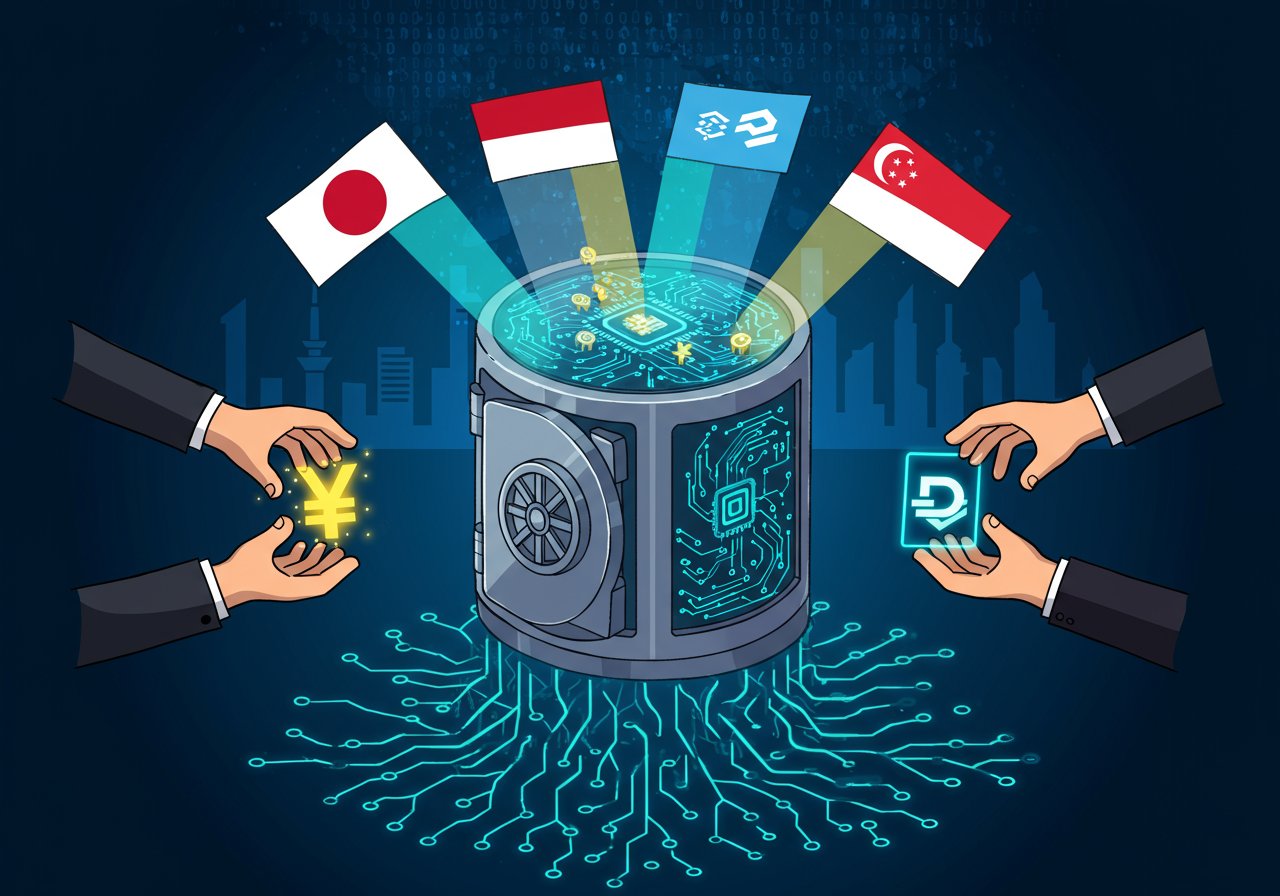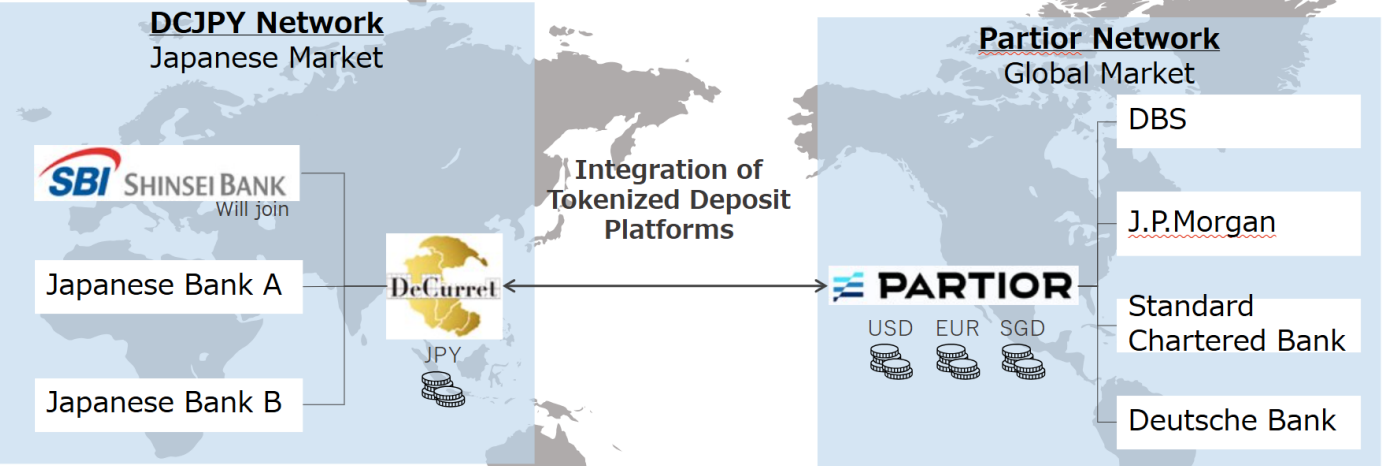
Japan‘s Banking Giant Embraces Tokenization
In a significant move signaling the growing acceptance of digital assets, Japan‘s SBI Shinsei Bank has announced a strategic partnership aimed at revolutionizing international payments. Teaming up with Singapore-based Partior and Japan‘s DeCurret DCP, the bank intends to explore the issuance of tokenized multi-currency deposits. This collaborative venture represents a bold step toward modernizing financial infrastructure and streamlining cross-border transactions.
A Blueprint for Faster Global Payments
The initiative, formalized through a Memorandum of Understanding (MoU), seeks to develop a blockchain-based settlement framework. This framework will support real-time clearing in multiple currencies, promising a significant improvement over the existing, often cumbersome, international payment systems. DeCurret‘s established DCJPY platform, which currently facilitates yen-denominated tokenized deposits, provides a solid foundation. SBI Shinsei plans to build upon this, expanding its offerings to include other major currencies, thereby catering to the increasing demand for rapid and efficient global transactions.
The Power of Collaboration
Partior brings to the table a robust multicurrency settlement infrastructure already deployed by leading financial institutions such as JP Morgan, DBS, Deutsche Bank, and Standard Chartered. This platform currently supports USD, EUR, and SGD, and the partnership intends to integrate the Japanese yen. This collaboration is critical. SBI Shinsei will focus on the issuance of tokenized deposits, DeCurret will connect its DCJPY system to Partior’s global network, and Partior will enhance its platform to incorporate the yen. The aim is to establish a 24/7 global settlement network, overcoming the limitations of traditional banking hours. The project’s success hinges on the synergistic integration of the partners’ respective strengths.

Beyond Traditional Banking
The implications of this collaboration extend beyond mere technological advancement. If successful, this initiative could offer a viable alternative to the conventional correspondent banking model. By leveraging distributed ledger technology, the partnership aims to significantly reduce settlement times and associated costs, making international payments more accessible and efficient. This disruptive potential holds immense promise for businesses and individuals alike.
Echoes of Broader Industry Trends
This news aligns with the broader trend of central banks and financial institutions exploring the potential of tokenization. Projects like the Bank for International Settlements’ “Project Agora” and the Monetary Authority of Singapore’s (MAS) “Project Guardian” highlight a global focus on streamlining payments and improving transparency through blockchain technology. The SBI Shinsei initiative is a clear indicator that tokenization is no longer a futuristic concept; it’s an evolving reality poised to reshape the financial landscape.


